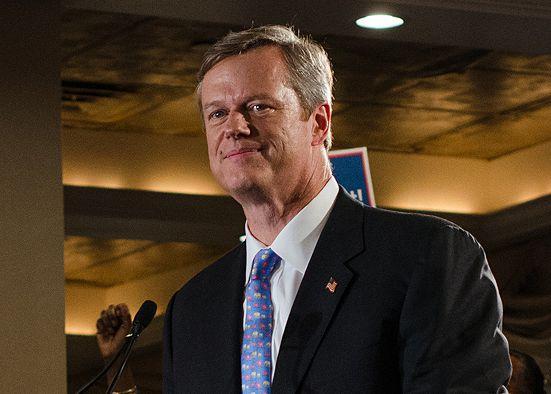As students in the capital of the Commonwealth, the Boston University campus has an unusually close association with the politics of the Massachusetts State House. Whether a student knows it or not, the Massachusetts government is churning out policies just a few stops down the Green Line. And over by the Boston Common, the person sitting at the governor’s desk is about to change.
But BU students’ interest in government depends on far more than proximity to the State House. Although major party candidates Republican Charlie Baker and Democrat Martha Coakley may be concerned with a potpourri of Commonwealth issues, as students, higher education is the number one on our priority list.
Getting through college, paying off loans and eventually finding a job in a recovering economy are huge concerns that require immediate attention, something Baker has pledged to give. His support for the students of the present — and their futures — sets him apart from Coakley, and in that spirit, The Daily Free Press endorses Charlie Baker for governor.
Baker has presented a comprehensive agenda for easing the pains of affording a college education and tackling the entire higher education system as a whole. His emphasis on three-year bachelor’s degrees at state universities, which would reduce tuition costs by 25 percent, is an initiative that could be implemented quickly and efficiently.
His promotion of connecting school to work through paid co-ops and internship experiences not only helps students learn while making a living, but also provides hands-on experiences in the workforces they will one day enter. And his support for online learning demonstrates Baker’s intent to utilize the potential the digital humanities has shown in a productive, cost-cutting manner.
Investing in higher education is an investment in the future, something Baker seems to understand through his emphasis on helping current students save money now. When put into action, his agenda could show results within the next three or four years, which has a direct effect on our generation. The more students able to earn degrees without the burden of crippling debt, the more stable the future economy will be, and the easier it will become for the students of tomorrow to repeat the cycle.
Coakley’s agenda for higher education, which promotes helping families save money for college early, is abstract at best, as is the bulk of her campaign. As Massachusetts Attorney General, Coakley has made honorable efforts to fight gay marriage bans, but has had her blunders along the way, including an alleged violation of 2010 campaign funds that is still under investigation.
Plus, her eight years of hobnobbing with Massachusetts Gov. Deval Patrick and the other state liberals indicate a blind deferral to her party’s policies. Yes, Massachusetts bleeds blue, but even Patrick has admitted he made some mistakes during his administration. Coakley, a Patrick devotee, is likely to continue the current governor’s business as usual.
Aside from looking out for college students, Baker has a decisive agenda that shows promising blueprints for the Commonwealth. His plans to construct affordable housing near transit centers to reduce traffic, prioritize job growth by spending more on vocational training and call attention to areas hit hardest by the Great Recession of 2008 demonstrate a devotion to firming Massachusetts’ growing — but imperfect — economy. And although he skirted around climate change when he ran for the gubernatorial seat in 2010, he has since pledged to devote sizable funds to green energy alternatives.
Aside from the major party candidates, this year’s gubernatorial election is also fortunate to have three intriguing Independents vying for the governor’s seat. Evan Falchuk of the fledgling United Independent Party, strikes a positive balance between conservative and liberal agendas, yet may be more concerned with gaining a large enough voter percentage to make his party official. Jeff McCormick, with his drastic plans to cut taxes for businesses and “hands off” social views, is more of a businessman than a governor. And Scott Lively of the self-titled “Miracle Ticket,” may be better off taking his blindly religious and overly conservative policies elsewhere.
So Baker isn’t perfect. His tears while recounting a story of a fisherman he met on the campaign trail in 2009 was overly dramatic, and his hyped-up appeal to women voters could be chalked up to a phony campaign stunt. Yet Baker is honest about his deviation from bedrock conservative policies.
In a National Republican Party overwhelmingly composed of social conservatives, it speaks highly of the Commonwealth, and Baker, that our Republican candidate is a social moderate who is both pro-choice and pro-same sex marriage. Some of Baker’s actions during the campaign may be a little theatrical, but at least he’s not a blind partisan.
In a staunchly Democratic state government, perhaps a Republican candidate is necessary to counteract the same-old liberal stalwarts. With his devotion to cutting higher education costs, realistic economic goals and, most importantly, adaptability, Baker is the right candidate for not just the residents of Massachusetts, but its students as well.

















































































































